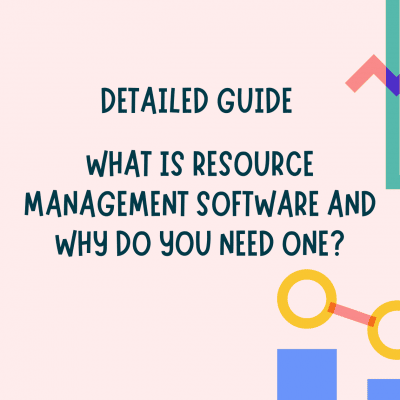How To Choose The Best Inventory Management Software
Is managing your inventory starting to feel like a daunting task? A staggering 43% of businesses still use manual processes for tracking their stock. This post will guide you on how to select the best inventory management software, tailored specifically to streamline your stock management process.
Ready to upgrade your business systems and see amazing results? Let’s dive right in!
What is Inventory Management Software?
Inventory management software is a powerful tool that helps businesses efficiently track, organize, and manage their inventory operations. With its advanced features and functionality, this software allows companies to streamline their inventory processes and maintain optimal stock levels.
Whether you run an e-commerce business or a restaurant, implementing the right inventory management software can greatly enhance your productivity and profitability.
Features
The right inventory management software offers many helpful features.
- Barcode scanning: This helps in quick and easy data entry.
- Automated stock: This lets you know when it’s time to order more things.
- Reporting tools: These help you see how your inventory is doing.
- Demand forecasting: This feature helps you plan for future sales.
- Asset tracking: This aids in keeping track of where your things are.
- Scalability: A good system will grow with your business.
- Ease of use: The best software solutions are easy to learn and use.
- Customer support: Top-notch help should be there if you run into any problems.
Benefits
Using inventory management software has many perks.
- It keeps track of all goods. You know what items are going out and coming in.
- It saves time. The software can fill out forms for you.
- It stops errors from happening. The system checks for mistakes.
- It makes orders easy to do again. If you sell the same things, the system remembers them.
- It helps find problems quickly. This lets businesses make fixes without delay.
- It lowers costs of holding onto too much stuff by tracking how fast items sell.
- The software offers important reports about sales and stock trends.
- Companies can plan better for high order times, like holidays, using forecasting tools in the software.
When Do You Need to Use Inventory Management Software?
There are certain types of businesses that can greatly benefit from using inventory management software. For example, e-commerce businesses that deal with a large number of products and orders can streamline their inventory operations by utilizing this software.
Similarly, restaurants can use inventory management software to keep track of ingredients and supplies while ensuring they never run out of stock. If you find yourself struggling to manage your inventory effectively or experiencing frequent stockouts, it may be a sign that it’s time to invest in inventory management software.
Types of businesses that can benefit
Many different types of businesses can benefit from using inventory management software. Here are some examples:
- E-commerce businesses: Online stores that sell products can benefit from inventory management software to keep track of their stock and ensure they have enough inventory to meet customer demand.
- Restaurants: Restaurants can use inventory management software to manage their food and beverage inventory, track ingredients, and analyze purchasing patterns to optimize their supply chain.
- Retail businesses: Retail stores can benefit from inventory management software to accurately track their stock levels, manage reordering, and reduce the risk of overstocking or understocking.
- Warehouse operations: Warehouses that handle large quantities of inventory can use warehouse management software to efficiently manage incoming and outgoing shipments, track stock locations, and streamline their operations.
- Supply chain management: Businesses involved in supply chain management can utilize inventory management software to optimize the flow of goods, minimize disruptions, and improve overall operational efficiency.
- Manufacturing companies: Manufacturers can benefit from inventory management software to monitor raw material availability, plan production schedules, and ensure a smooth manufacturing process.
Signs that you need to invest in inventory management software
Is your business struggling to keep track of inventory? Here are some signs that it’s time to invest in inventory management software:
- Excess or shortage of inventory: If you often find yourself with excess or insufficient stock, it may be a sign that manual tracking methods are not sufficient.
- Inaccurate order fulfillment: Are you constantly making mistakes when packing orders? This could be due to a lack of visibility into stock levels and product locations.
- High carrying costs: Carrying costs include expenses like storage, insurance, and depreciation. If these costs are eating into your profits, it’s time to streamline your inventory management.
- Difficulty in forecasting demand: Without accurate data on past sales and fluctuations in demand, it becomes challenging to forecast future needs and make informed purchasing decisions.
- Lack of real-time visibility: Do you struggle to access up-to-date information on stock levels, sales, and supplier performance? This can hinder your ability to make informed decisions quickly.
- Manual data entry errors: If you’re still relying on spreadsheets and manual data entry, there’s a higher chance of human errors creeping in, leading to costly mistakes.
- Disorganized warehouse operations: A disorganized warehouse can lead to misplaced or lost items, inefficient picking processes, and delays in order fulfillment.
How to Choose the Best Inventory Management Software
To choose the best inventory management software, start by identifying your business needs and considering your budget. Evaluate key features, such as automated stock control and barcode scanning, to ensure they align with your requirements.
Additionally, researching customer reviews and ratings can provide valuable insight into the software’s functionality and customer support. Finally, consider scalability and future growth to ensure that the software can accommodate your expanding inventory operations.
Identify your business needs
To choose the best inventory management software for your business, it’s important to identify your specific needs. Here are some key factors to consider:
| Factor | Description |
|---|---|
| Determine the size of your inventory | Assess the volume of inventory and the variety of products to find software that can handle your needs. |
| Consider integration with other systems | Look for software that can seamlessly integrate with your existing systems to ensure data flow and compatibility. |
| Assess your reporting requirements | Determine the types of reports and analytics you need, such as sales performance, stock levels, and forecasting. |
| Evaluate user-friendliness | Prioritize ease of use with intuitive interfaces and navigation for efficient utilization by your team. |
| Analyze pricing options | Consider budget constraints and explore various pricing models, such as monthly fees or one-time pricing, from different providers. |
Consider your budget
When choosing the best inventory management software, it is important to consider your budget. Different software solutions have different pricing structures, so you need to find one that fits within your financial means.
Look for a software that offers the features and functionality you need at a price that aligns with your budget. Remember, cost shouldn’t be the sole determining factor – also consider the value and benefits of the software in relation to its price.
By considering your budget carefully, you can ensure that you find an inventory management software solution that meets both your needs and financial capabilities.
Evaluate key features
To choose the best inventory management software, it’s important to evaluate key features. Here are the factors you should consider:
| Key Feature | Description |
|---|---|
| Functionality | Essential features like inventory tracking, order management, and reporting capabilities. |
| Integration | Seamless integration with existing systems (e-commerce platform, accounting software). |
| Customization | Customizable fields, layouts, and workflows to match business requirements. |
| User Interface | User-friendly, intuitive interface for easy navigation by you and your team. |
| Mobile Accessibility | Mobile app or accessibility via a mobile browser for on-the-go inventory management. |
| Automation | Features like stock replenishment, low stock alerts, and barcode scanning for streamlined operations. |
| Scalability | Ability to accommodate future business growth in terms of product range, sales volume, and users. |
| Customer Support | Level of customer support provided by the software provider for timely assistance. |
Research customer reviews and ratings
To make an informed decision when choosing the best inventory management software, it’s important to research customer reviews and ratings. By reading what other customers have experienced, you can get a better idea of the software’s performance and reliability.
Look for feedback on key features like inventory operations, barcoding, automated stock, and inventory control. Pay attention to comments about customer support and whether the software meets their specific needs.
Customer reviews can provide valuable insight into the strengths and weaknesses of different options, helping you narrow down your choices and find the best software for your business.
Consider scalability and future growth
When choosing the best inventory management software, it’s essential to consider scalability and future growth. You want a software solution that can accommodate your business as it grows and expands.
Look for features like the ability to handle increasing inventory volumes, support for multiple warehouse locations, and integration with other systems. This ensures that you won’t outgrow the software quickly and need to switch to a new system in a short amount of time.
By considering scalability and future growth, you can make sure that the inventory management software you choose will continue to meet your needs as your business evolves.
Conclusion: Things to Keep in Mind When Choosing Inventory Management Software
When choosing inventory management software, it’s important to consider your business needs and budget. Evaluate the key features of each software option, read customer reviews and ratings, and think about scalability for future growth.
By keeping these things in mind, you can find the best inventory management software that meets your requirements and helps streamline your operations.




